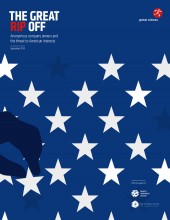New Discussion paper for the Civil Society Reflection Group on Global Development Perspectives I March 2015
The Post-2015 Agenda with the Sustainable Development Goals (SDGs) as one of its key components is intended to be truly universal and global. This requires a fair sharing of costs, responsibilities and opportunities among and within countries. The principle of »common but differentiated responsibilities« (CBDR) must be applied. Coupled with the human rights principle of equal rights for all and the need to respect [...]









